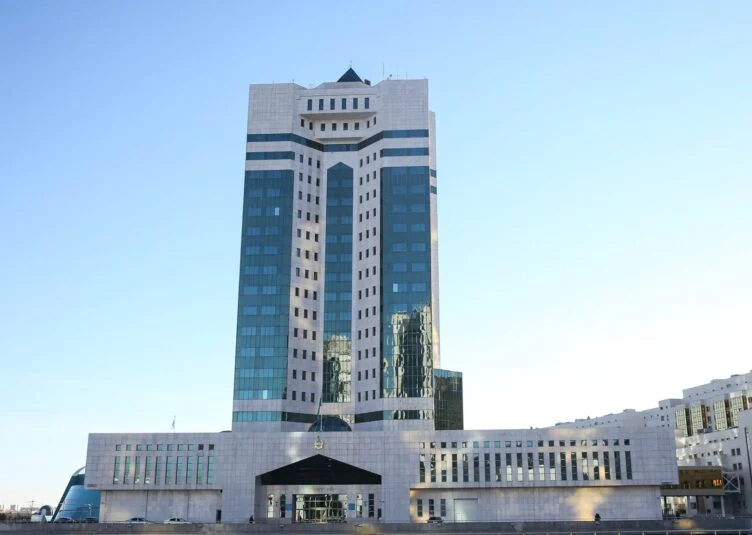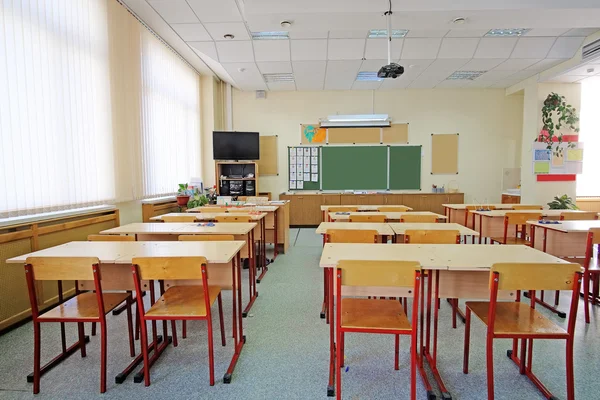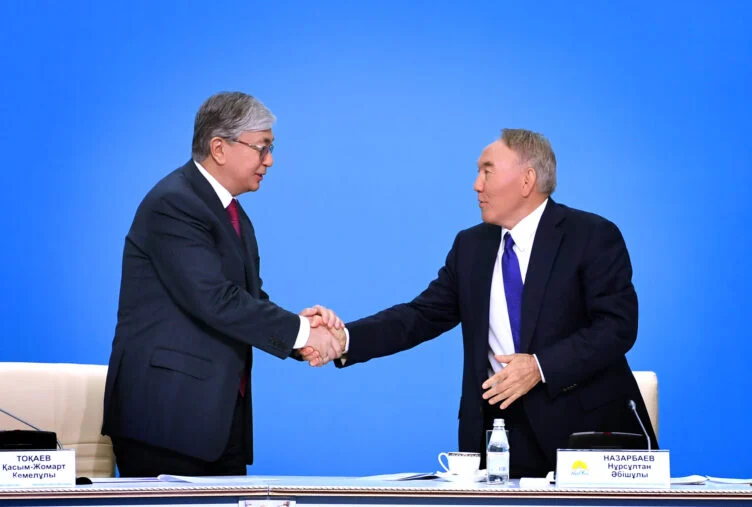Biden Rejects the Drug of Power
“We cling to power as a flea clings to a collar,” Soviet leader Nikita Khrushchev, my great-grandfather, declared in 1957. To make his point, he asked his audience of shocked Communist Party apparatchiks what the average retirement age was. “Mid-sixties,” someone replied. The 63-year-old Khrushchev joked that he was getting up there and wanted to sip tea peacefully as a pensioner, not to head straight from the Kremlin to the grave. US President Joe Biden apparently got the memo.
To be sure, a US president is not the same as a Soviet dictator (at least for now). Khrushchev was operating within an authoritarian system in which transfers of power typically followed funerals, not elections. In his case, it was a coup that ultimately brought about change: his colleagues ousted him in 1964, partly because they did not want to lose power if he stepped down.
But relinquishing power is difficult when nothing is forcing you to do so. That was true even for Khrushchev, who was so convinced of its importance that he sought to enshrine term limits in the Soviet constitution. Though he had planned to step aside in 1965, he admitted in retirement that he probably wouldn’t have had the courage to follow through, because he had goals – opening up the Soviet Union’s borders, easing censorship, ending the Cold War – that no successor was likely to pursue.
Khrushchev’s fears were hardly unfounded: these changes ended up taking place only 20 years later, during Mikhail Gorbachev’s perestroika era. But one must wonder whether Khrushchev – who was 70 when he was ousted, and had already presided over a despotic system for almost a decade – would have had the will, let alone the flexibility, to continue to push through those reforms, even if he had remained in power.
Stepping down did not come easily to Biden, either. He had faced intensifying pressure to suspend his presidential campaign over concerns about his age and mental acuity ever since his faltering performance in a debate with the Republican presidential nominee, Donald Trump, in late June. But, for nearly a month, he resisted.
Some of Biden’s arguments for staying in the race had some merit: his governance record from the last three and a half years is impressive, and only he has defeated Trump in a presidential election. But other arguments – for example, that he stands for American democracy (as if other Democrats don’t) – were far flimsier. Perhaps the psychology of power in autocracies and democracies is more similar than we like to admit, with those on top coming to believe that theirs is the best – or even the only – way.
Absolute power corrupts absolutely. That is the kind of power Khrushchev had, and he was corrupted by it. The danger of such corruption is less acute in a democracy, thanks not only to formal constraints on power, such as elections and term limits, but also to the central role of persuasion, cooperation, and consultation with allies and colleagues. But it still takes tremendous force of will to cede power voluntarily.
Given this, Biden should be commended for dropping out of the presidential race and endorsing his vice president, Kamala Harris, as the Democratic Party’s nominee. It is a sign of strength to admit to limitations, to listen to reason, and to recognize the will of the majority.
This is something the Kremlin’s propagandists – who have been presenting Biden’s decision as a sign of weakness, while repeatedly highlighting Republican demands that he also step down immediately as president – do not understand. Their “fearless leader” Vladimir Putin, who has ruled Russia for a quarter-century now, would never bow to such pressure.
When Putin faced mass protests over his decision to return for a third presidential term in 2012, after serving as prime minister for four years, he faced intense pressure to quit (or so I was told by Kremlin insiders at the time). But Putin was committed to upholding his reputation as a “macho man,” and refused to back down. Since then, he has turned more authoritarian with each passing year.
Putin’s stubborn refusal to change course has also been on display in Ukraine. After it became apparent that the full-scale invasion of February 2022 would not yield a quick victory, he doubled down, making nuclear threats and annexing four partially occupied regions of Ukraine (Donetsk, Kherson, Luhansk, and Zaporizhzhia).
The irony is that Putin did not initially plan to stay in power for long. He was supposed simply to consolidate his predecessor Boris Yeltsin’s legacy, before moving on to some cushy job as, say, a Gazprom executive. But as Andrei Sakharov – the Soviet nuclear physicist and human-rights activist who received a Nobel Peace Prize in 1975 – supposedly used to say, the kiss of the Kremlin’s power is deadly. If it could corrupt Khrushchev, who genuinely believed in the rotation of power, it was virtually guaranteed to infect Putin, a former KGB boss.
“The young will sign papers even better than we, the oldies, do,” Khrushchev once quipped, “and won’t forgive us if we don’t step aside.” But, as long as Putin remains in control, he will have no need for anyone’s forgiveness. So, damn the young. Damn all Russians. Damn education, the economy, cultural and scientific exchanges, and good international relations. Damn Russia’s future.
By stepping aside to let a younger candidate take over, Biden has prioritized America’s interests over his own desire to lead. The decision reflects a humility that is far more likely to be found among democratic leaders than authoritarians. But as Trump has shown – such as with his efforts to overturn the 2020 election and his vow to be a dictator “on day one” – such humility is never guaranteed.
Copyright: Project Syndicate, 2024. www.project-syndicate.org





Все комментарии проходят предварительную модерацию редакцией и появляются не сразу.